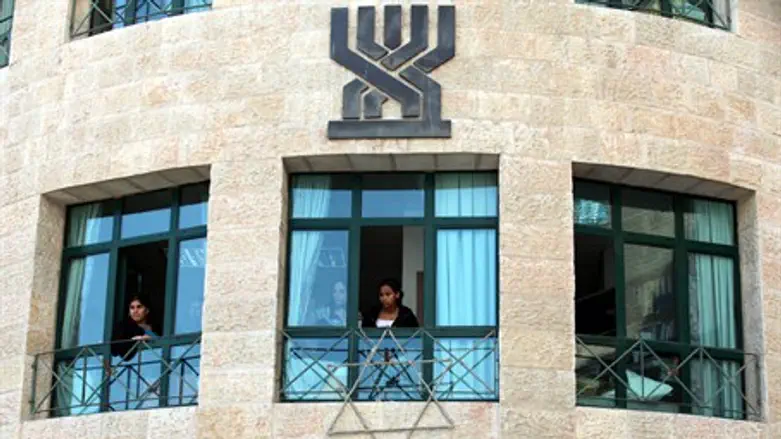
The National Insurance Institute (Bituach Leumi) was founded to assist Israel’s needy. Instead, it has become their nightmare, thanks to draconian policies that often leave the poor worse off than they were, says attorney Eli Maloul, speaking to Arutz Sheva.
Maloul worked as an investigator for the National Insurance Institute (NII) for thirty years. He now represents those hurt by NII policy in court.
The institute’s workers are dedicated to their jobs, he said, but are unable to truly help due to policy. As an example, he noted the policy regarding citizens who cannot pay their monthly NII fee due to unemployment.
A person who has not found a new job within six months must continue to pay his bill after six months, at least 300 shekels a month, he explained. “If he doesn’t pay, they’ll withhold his child payments within half a year,” he said. “The first thing the NII takes is the child benefit payment, but that’s money meant for the children’s welfare. It’s against the intent of the law.”
Another example involves a case similar to that of Moshe Silman, who made headlines nationwide when he set himself on fire during a Tel Aviv protest, an act he attributed to desperation over welfare policy. A person who owes the NII money and owns a vehicle will have his vehicle impounded, Maloul said – leaving him unable to sell it to pay his debt.
“The NII tells him that what has been impounded won’t be returned until he pays, so there’s a ‘chicken and egg’ story here,” he noted. The institute’s policy has become “draconian,” he added.
NII officials are victims of policy, he said. They are expected to show success in collecting fees. “If they don’t show the right figures, they’ll be in trouble with their superiors, so they collect with a heavy hand, and [collection] becomes more aggressive, and more hurtful to citizens,” he related.
Making things worse is the fact that the NII has no system for determining whether or not an individual can actually afford to pay his or her monthly fees, Maloul noted.
Complaints about the public housing system are also tied to the NII, he said, because the NII determines eligibility for public housing. “Almost everything goes through the National Insurance Institute,” he explained.
The government cannot explain away problems with the NII by claiming lack of funding, he argued, as the government has been claiming economic growth. Israel as a nation has the moral responsibility to assist the weak, he said.
Maloul noted a bright point in the policy of the Labor Court, which has often sided with the needy against the NII, and has rebuked the institute for failing to uphold its mandate to help.